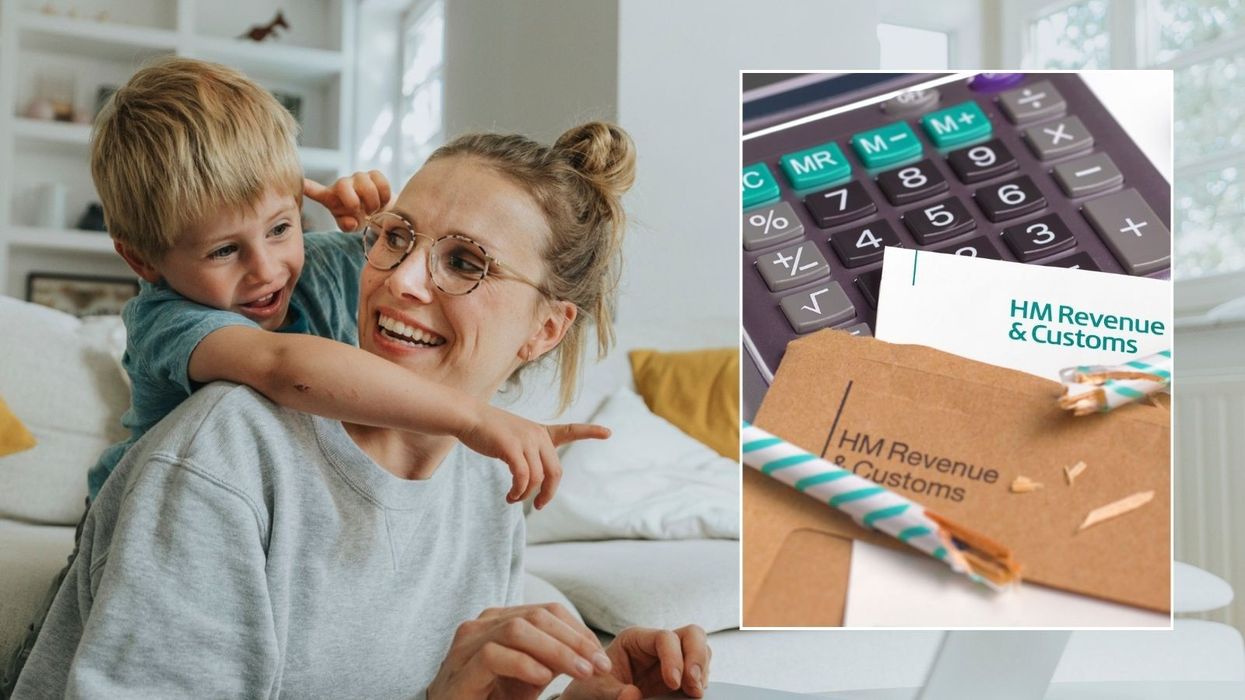HMRC rule change means parents earning up to £60,000 could now get an extra £2,214 a year

The income threshold for Child Benefit payments eligibility has been increased from £50,000 to £60,000,
| GETTY
Families are urged to check if they can get grants for computer equipment, musical instrument lessons, and school uniforms
Don't Miss
Most Read
Parents in the UK earning under £60,000 can now claim up to £2,214 annually, following a recent HMRC rule change.
The income threshold for Child Benefit payments eligibility has been increased from £50,000 to £60,000, allowing more families to access this financial support.
A recent survey by Lowell revealed that 54 per cent of UK parents are using credit products to cover essential school costs. This financial strain comes amidst rising inflation, with the Consumer Prices Index showing a 2.2 per cent increase in July 2024.
The study found that 13 per cent of parents have used payday loans, while 15 per cent have turned to buy-now-pay-later schemes for school expenses.
John Pears, CEO of Lowell said: “While these credit solutions can offer short-term relief, worryingly, 69 per cent of those surveyed using credit products are concerned about the challenge of repaying them.
“For some, this could lead to longer-term financial difficulties, including a negative impact on their credit score, which could affect their ability to be approved for credit in the future.”
Given these challenges, parents are urged to check their eligibility for Child Benefits and other support schemes to help manage school-related expenses, instead of looking to credit which can incur high-interest charges.

Some 13 per cent of parents have used payday loans, while 15 per cent have turned to buy-now-pay-later schemes for school expenses
| GETTYChild Benefit payments currently stand at £25.60 per week for the eldest or only child - which over the year could boost income £1,333, and £16.95 per week for each additional child, which could total up to an extra £881 a year. These rates came into effect on April 6, 2024.
The benefit is available to those responsible for children under 16, or under 20 if in approved education or training.
Payments are typically made every four weeks, but single parents or those receiving certain benefits may opt for weekly payments.
Eligible parents can claim Child Benefit as soon as 48 hours after registering a birth or when a child comes to live with them.
Pears added: “As 66 per cent of parents surveyed said they had not reached out for support or advice for back-to-school costs, we want to reassure parents that there are other, often more manageable ways to get support with these costs.
“For example, local authorities or the school directly can provide tailored advice based on your situation, such as uniform grants and subsidiaries towards laptops and tablets for families who require support.”
Parents with savings or investments under £16,000 may also qualify for Universal Credit. This benefit can provide additional support, including free school meals and childcare assistance for after-school clubs and holiday programmes.
Notably, around 200,000 eligible pupils aged four to 15 are not claiming their free school meals, which could save families over £400 annually.
All children in Year 1 and Year 2 automatically receive free school meals. For those in Year 3 and above, eligibility extends to families receiving Universal Credit or benefits such as Child Tax Credit, Income Support, or Income-Based Jobseeker's Allowance.
Parents are encouraged to check their eligibility for these benefits, as they can significantly help cover essential school costs.
Full details on eligibility and how to claim can be found on the Government website.
Pears emphasised the importance of seeking support for financial pressures stating: “For many families across the UK, associated back-to-school costs such as uniforms can be difficult to afford, meaning many parents across the UK can find themselves worrying about their finances.
“Though credit can be a tool for helping to spread these costs, many credit products have high interest rates, and if unforeseen expenses occur, keeping up with credit repayments can become increasingly difficult.
“With this in mind, we wanted to provide parents with some insights and resources to help manage school expenses in the coming weeks. You can find a list of organisations ready to support you at https://www.lowell.co.uk/help-and-support/independent-support/.”
The Government is also considering changes to make the system fairer. From April 2026, child benefit claims may be based on total household income rather than the highest earner's wage, addressing criticisms of the current system's impact on single parents and families with one high earner.










